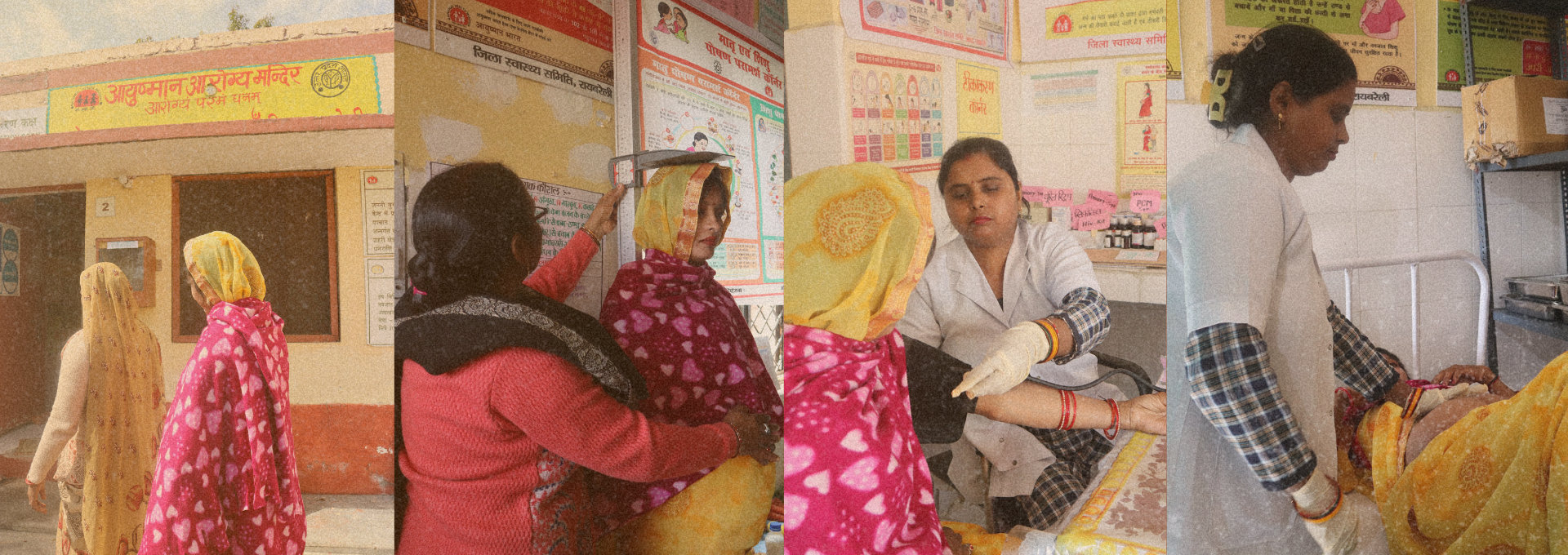
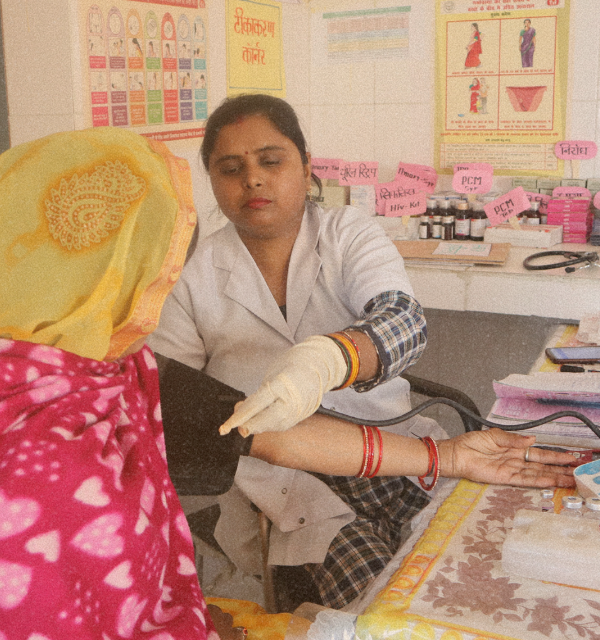
Every month, on Wednesdays or Saturdays, designated as “Chhaya Integrated Village Health Sanitation and Nutrition Days,” the Ayushman Arogya Mandir (Health and Wellness Centre – HWC) near Swati’s* home in a rural village comes alive with activity. Expectant and lactating mothers, couples, children due for vaccinations, and community members all come together for various healthcare services offered by the HWC, which remains open throughout the month. These special days provide a dedicated opportunity to access these services within this vibrant community setting.
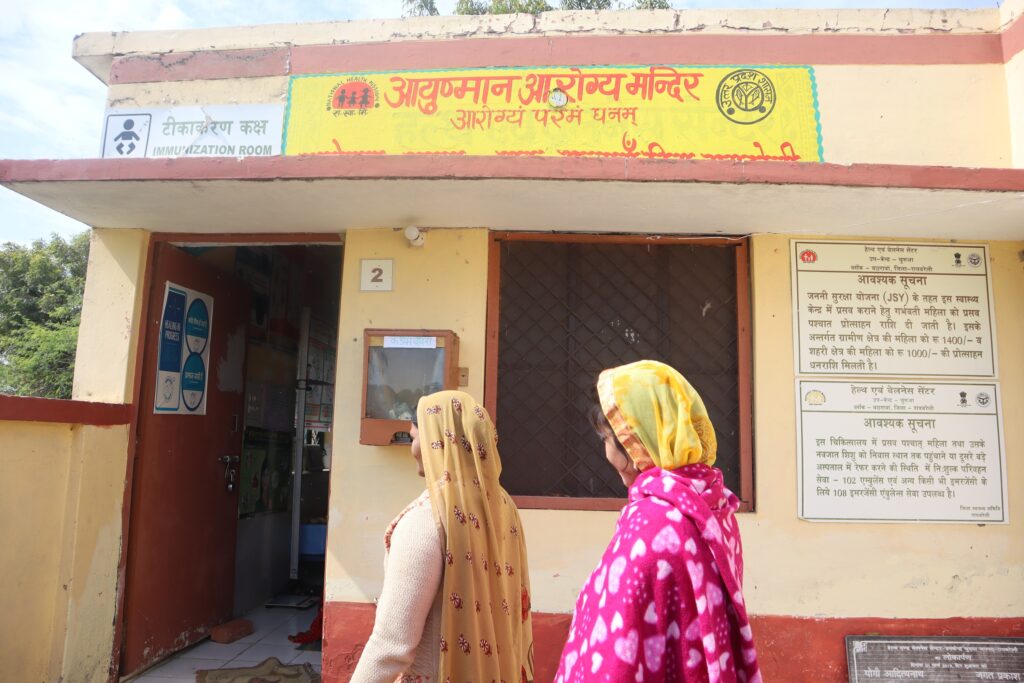
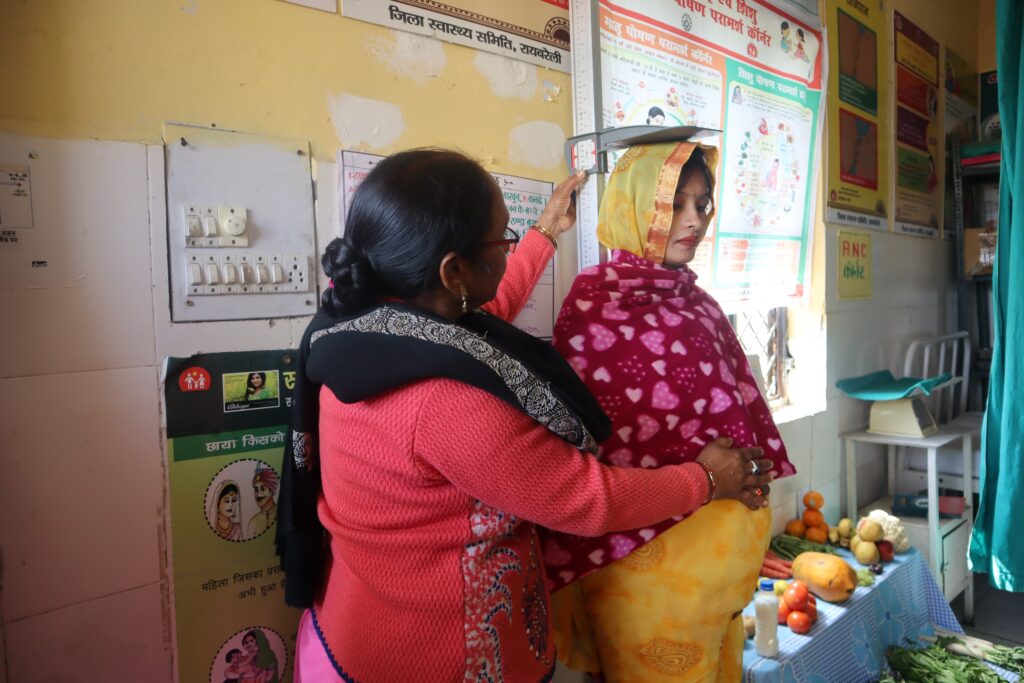
The visit begins with a routine weight checkup. Swati steps onto the weighing scale, and the Anganwadi Worker (AWW) records her weight, not just a number, but a crucial indicator of her and the baby’s growth. This entrusts Swati with knowledge about her own health and allows the AWW to intervene if the weight is not appropriately moving.
Next, the AWW delves into Swati’s dietary habits. Her food feeds both her and the baby growing inside. The AWW assesses her nutritional intake and offers advice. Perhaps it’s introducing a new food group rich in iron and folic acid or suggesting ways to make healthy options more appealing.
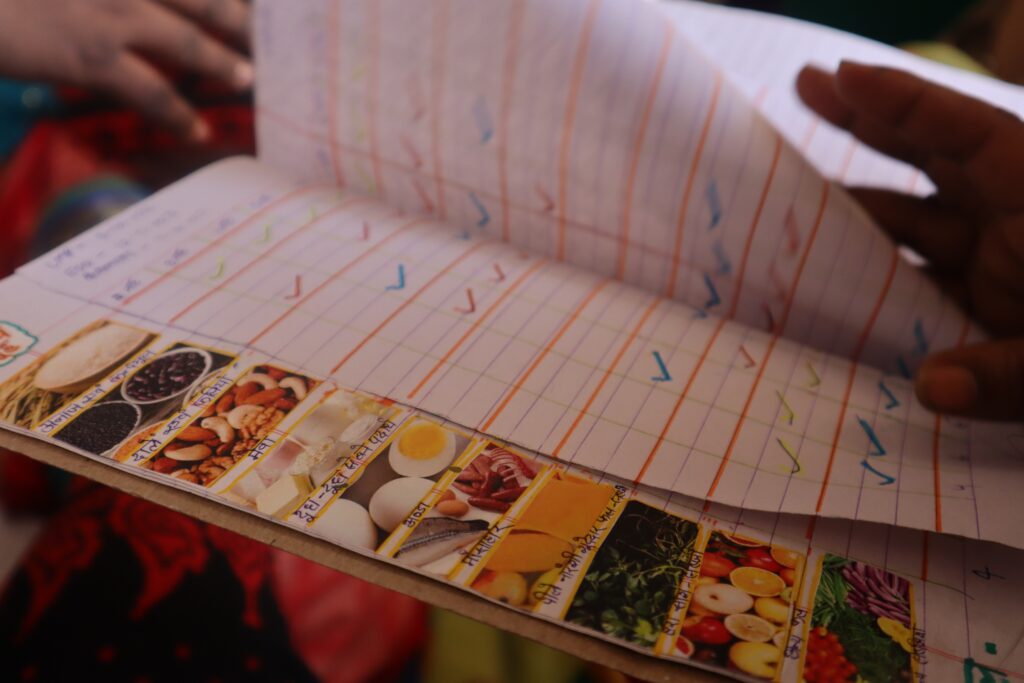
The baton then passes to the Auxiliary Nurse Midwife (ANM), another pillar of support for Swati. The ANM meticulously checks her blood pressure, a vital sign throughout pregnancy. She also measures Swati’s haemoglobin level, ensuring she has a normal level of Hb.
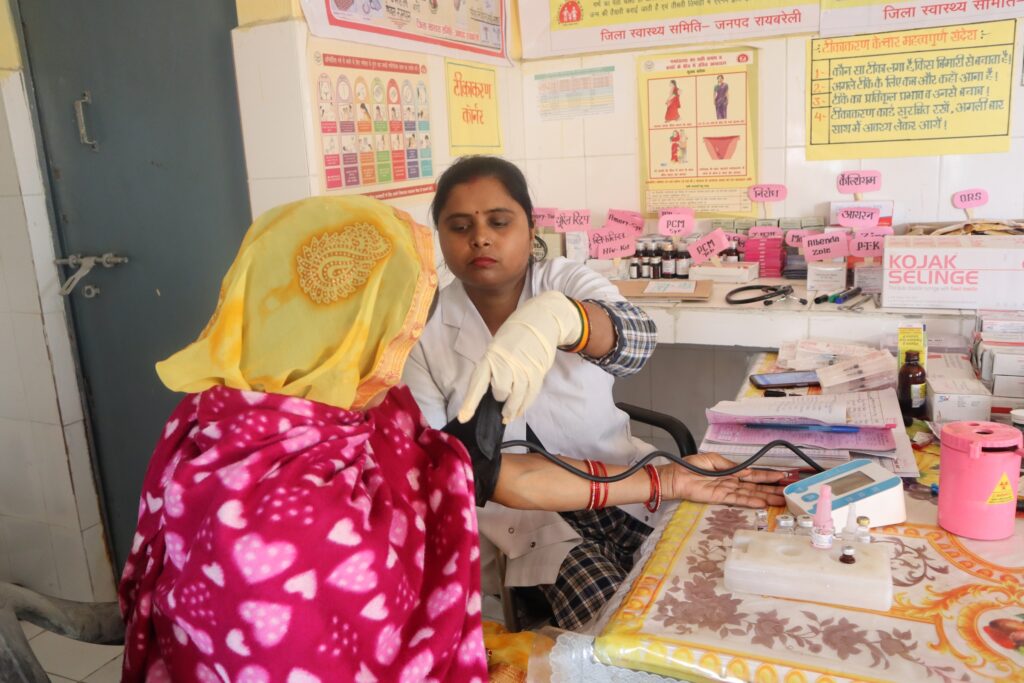
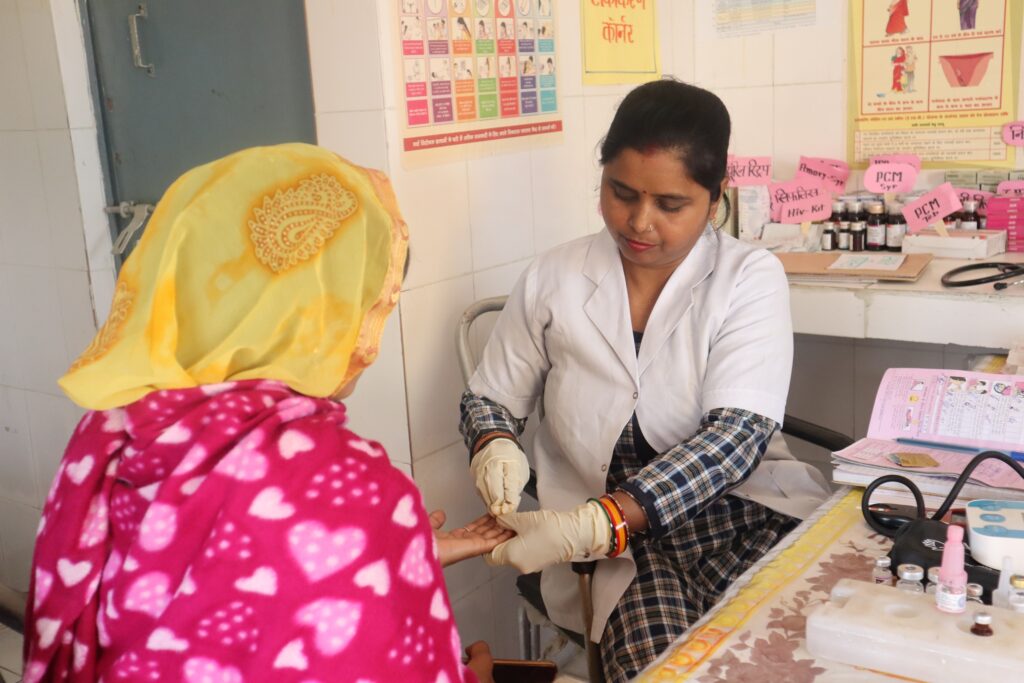
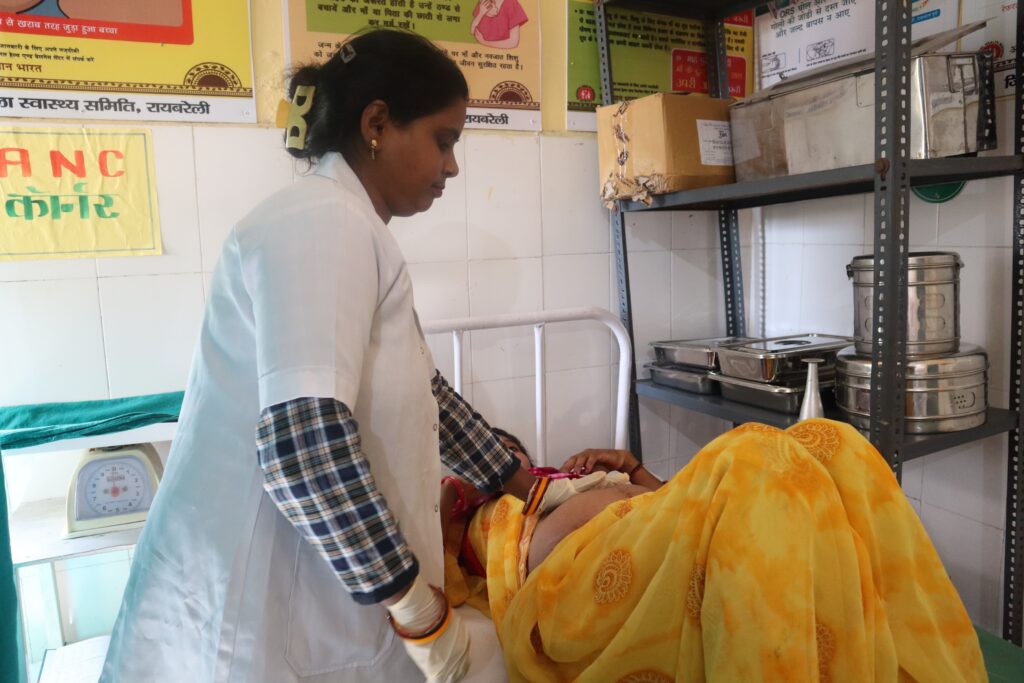
Swati’s ante-natal check-up journey isn’t complete without mentioning the Mother and Child Protection Card (MCP Card)
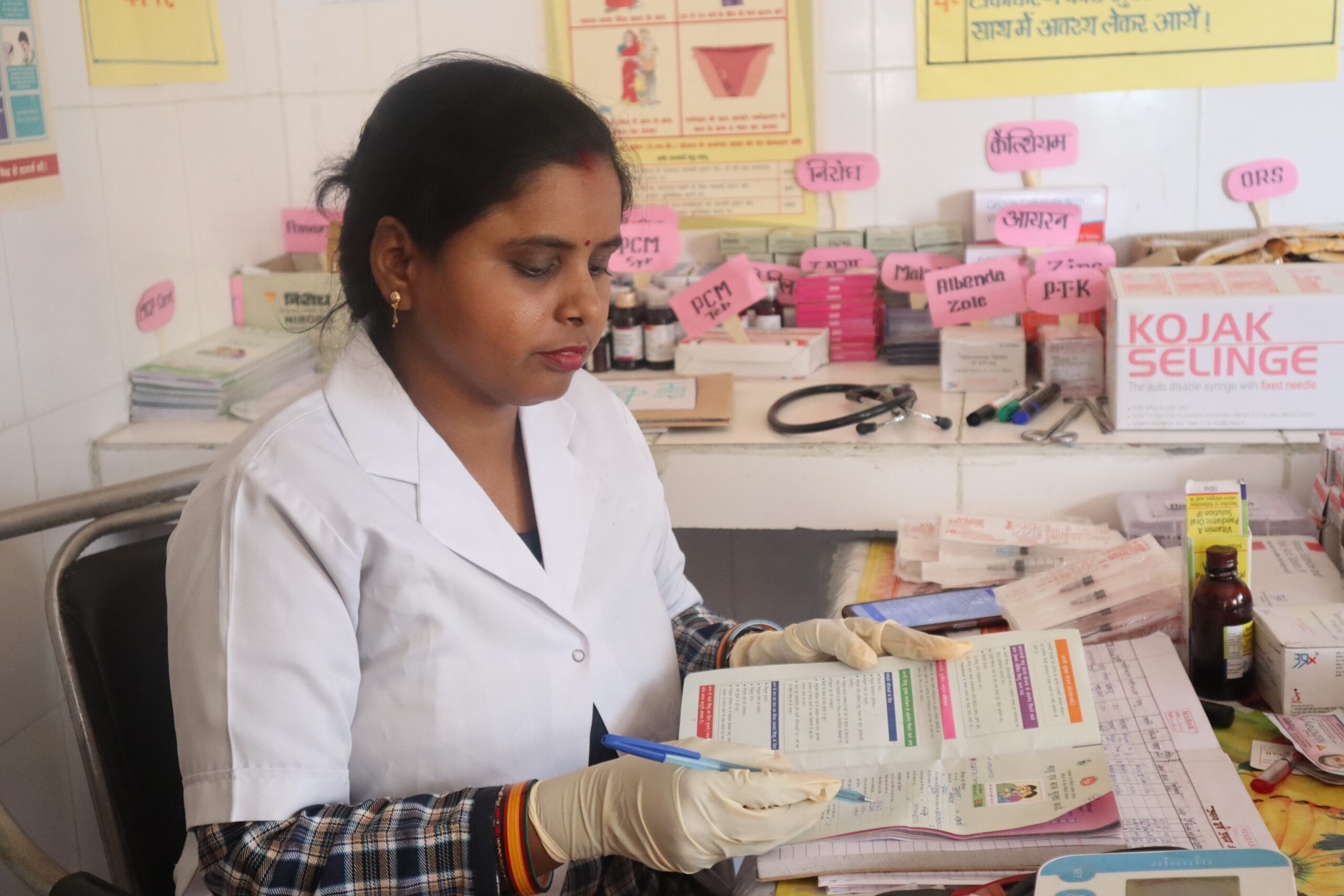
This card acts as a multi-purpose tool throughout her pregnancy and her child’s early years. It serves as a counselling tool and record-keeper, tracking her weight, vitals, and the baby’s growth milestones.
Swati’s story is not unique. Countless women in rural India find quality services and guidance for birth preparedness at CiVHSND sessions. These essential checkups and the AWW’s and ANM’s expert advice empower mothers to make informed choices about their health and their baby’s development. Ayushman Arogya Mandir (AAM) transcends the walls of a healthcare facility, becoming a space for peer support, pregnancy experience sharing, health education, and a sense of community for mothers like Swati.
CiVHSNDs have a remarkable impact on accessible healthcare services, particularly for women in rural areas. It’s a testament to the dedication of the ASHAs, AWWs and ANMs, who play a crucial role in ensuring healthy pregnancies and a brighter future for generations to come.
About the Community Outreach Interventions of Uttar Pradesh Technical Support Unit
The Uttar Pradesh Technical Support Unit (UP TSU) supports the Government of Uttar Pradesh (GoUP) in strengthening the CiVHSND platform for RMNCH+N services. Through the field warriors – Block outreach coordinators (BoC) who provide handholding support and guidance to the ASHA Sanginis, and Mukhya Sewika who, in turn, mentor the ASHAs and AWWs on their day-to-day responsibilities. UP TSU also supports GoUP in developing a measurement matrix and setting up a robust monitoring mechanism through the direct observation of CiVHSND by district, block and below block level officials, including Community Health Officers (CHOs), Block Community Process Managers (BCPMs) and District Community Process Managers (DCPMs). This helps in tracking the progress in service delivery coverage and continuously identifies gaps, following which specific steps can be taken to address the same.
Reaching over 100,000 villages through 150,000 ASHAs and 25000 ANMs, the CiVHSND platform is revolutionizing healthcare delivery in Uttar Pradesh, providing integrated RMNCH+N services.
To know more about UP TSU’s work on CiVHSNDs in Uttar Pradesh, click here.
*indicates that the individual’s name has been changed to protect the identity